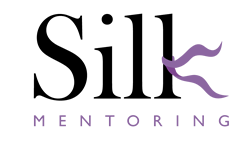Each time we face our fear, we gain strength, courage, and confidence in the doing.
-Theodore Roosevelt.
In a casual survey carried out on 40 women, we asked them about the one capacity or skill they want to master personally and professionally; confidence was mentioned unanimously. This is interesting because all these women are accomplished and capable, carry conversations smoothly and introduce new ideas easily. So the question becomes; if it isn’t the skills and attitudes they already posses, what other things are women looking for to feel they are exemplifying confidence and how do they learn these skills systematically.
What is confidence?
 SILKMentoring defines confidence as belief in self, in one’s skills and competencies. Such belief can be learned and through it an individual can unleash their unique capabilities in both personal and professional settings.
SILKMentoring defines confidence as belief in self, in one’s skills and competencies. Such belief can be learned and through it an individual can unleash their unique capabilities in both personal and professional settings.
What does confidence look like?
According to an article in Inc., Amy Cuddy gave a TED talk on the benefits of “power posing”. Her book “Presence” explores the benefits of following the body language of powerful people. The people who exude confidence tend to talk with authority, carry themselves with poise and maintain a straight back. Their fallback position is the power pose where they rest their hands on their hips, feet apart and their chins tilted upward. Their face is relaxed and they talk in a controlled tone.
Michigan State University on the other hand conducted 11 studies that dispute Cuddy’s ideas, and claim that power poses do not meaningfully affect people’s lives.
In our view, true confidence is more than a series of externalities, it is some of that, but confidence is primarily something mental and emotional. Mental and emotional skills are significantly harder to acquire than a series of bodily habits or poses. Such skills are relative to every individual’s capacity. People’s upbringing, personal experiences, formal education, life goals, desires etc., all influence how they perceive and foresee themselves.
According to Napoleon Hill, “What the mind can conceive and believe it can achieve.” – this is a great understanding of mental confidence. Imagining a stronger, more confident version of yourself can boost your confidence. It helps you take initiative and be more decisive. Nikki Carnevale adds to this saying that “affirmations are a powerful tool to deliberately install desired beliefs about yourself” – this works on one’s emotional confidence. The constant practice of giving yourself verbal praise and affirmations helps your mind re-wire itself to see things about you in a positive light.
Adopt these habits of mental and emotional confidence building and soon you will begin to celebrate yourself, will stop feeling intimidated by other people’s thoughts and opinions, and will no longer be afraid to share your thoughts and ideas with others.
SILKMentoring suggest the following to boost your confidence
- Share. The experience of sharing is inclusive. Giving and receiving, creates a bond between people and the safe environment required for self-confidence to grow. Interestingly, moving from the dichotomous “I-them space” to an “Us space” is vital to building self-confidence. Mental and emotional shifts occur when interacting with others, replacing I-Them” with “Us or We”.
- Live with Courage. Everyone has something to give and contribute to the betterment of others, no matter how small. In fact, every step taken to triumph over a fear makes you realize that that fear was holding you back from enjoying and sharing parts of yourself with others and living your life fully. People who live with courage have richer stories to share.

- Act Enthusiastically. Enthusiasm is different from happiness or joy; it is an excitement that radiates from within because you are filled with a sense of awe about something, and the electric eagerness to share something with someone else. Interestingly, enthusiasm tends to build within you when you expose yourself to new things and experiences (i.e. live with courage) and when you transmit to others your amazing experiences (i.e. share). Living this virtuous cycle increases your self-confidence in the process.
- The practice of confidence begins with self-belief. Self-belief begins with knowing who you are and understanding where you want to go to. Check out this video mind-mapping your confidence.
- Lastly, to enhance your confidence, we suggest carrying out a task to its end. If you have made a commitment to do something, whether this verbal agreement is to self or to others, see that it gets done no matter the difficulty or ease of the work. Completing something gives you confidence. It also helps in the future if you come across this work again, you can accomplish it with confidence because you know how the whole process is done.
Human beings are unique. There is no one way to build or grow your confidence. What works for one person will not work for another, so, SILKMentoring encourages you to experiment and find your path to confidence. We are here to help you define this personal path and achieve it in the most meaningful way with you.
